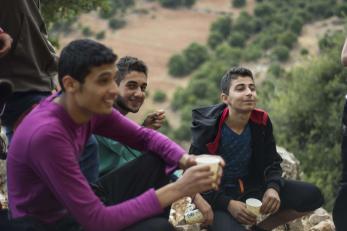Advancing Adolescents Impact Evaluation

Adolescence and early adulthood are critical phases in human development. Recent studies have reframed previous understanding of the adolescent brain to show that this phase of life lays the foundation for core personality traits and is identified as the most creative time in life. For migrants and refugee youth and their families, the immediate impact of a conflict is not only the inability to meet basic needs; there is also a huge emotional and psychological upheaval from witnessing acts of violence, resulting displacement and the loss of familiar social support networks.
The mental health and wellbeing of those experiencing conflict and displacement can directly affect their ability to meet their own basic needs and that of their family. The psychological effects of conflict cut across all age groups and demographics. For adolescents and youth, however, a failure to address persistent levels of toxic stress from prolonged exposure to trauma, insecurity, and lack of protective relationships, can have long-term physical, emotional and cognitive effects.
This report presents the results of a quasi-experimental, mixed-methods study of Mercy Corps’ three-year multi-country program targeting conflict-affected and displaced adolescents and youth to help improve their psychosocial wellbeing and prepare them with key ‘employability’ skills for future employment. Findings from this report build on a previous study and contribute to a growing body of evidence on the effectiveness of an integrated psychosocial support and livelihood intervention for young people, to shape forward-looking programs and policies in this field.


